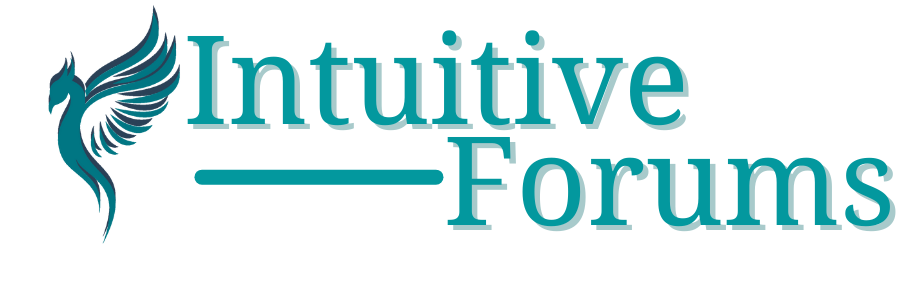-
CreatorDiscussion
-

JessicaParticipantIs there anything you wish you knew before you got into tarot reading or any advice you would give to beginners. Because I am new and don’t know that much but would love to know more. THANK YOU!!
Also some of the cards in the deck i got have like a tiny rip in them or a little scratch is it still ok to us the cards? -
CreatorDiscussion
-
HeronCroft
GuestJanuary 29, 2021 at 2:43 amEvery single card has hope in it, and no reading is ever completely negative. I see a lot of new readers get hung up on certain cards being scary or only negative, sometimes to the point where they become afraid to do readings or progress further with their studies. If you or the querant is alive, then every reading has an element of hope in it. A so-called scary card could be a warning of things to avoid, or just pointing out that there are some rocky times ahead. Sure, the tower could mean everything is going to go wrong, but it just as likely means something simple like don’t let being out of milk this morning ruin your whole day, shake things up and try something different for breakfast!
-
m00n-st0ne
GuestJanuary 29, 2021 at 2:43 amThis is gonna seem really dumb… but I wish I knew I didn’t have to read reversals ???? I look back at my very first spreads and not only was I struggling to learn the cards, I was also trying to learn their reversals too. It would’ve saved me a lot of frustration as a beginner. I stopped doing reversals “until after I’m comfortable with upright meanings” but over that time I just lost interest in doing them at all. I only read uprights now
-
yuko_hiro
GuestJanuary 29, 2021 at 2:43 am– don’t bother reading reversals when you’re first starting out, if something pops out as a reversal, though, (my cards sometimes reverse when im shuffling them), use your intuition to determine whether or not you should read it as such.
– to memorize the cards, do a daily spread for yourself each day. draw 3 cards, one representing the theme for today, one do, and one don’t. log your thoughts somewhere.
– come to your readings with a clear head, i find that anxiety can really sway my readings and show me the worst/reflect what im feeling.
– the first thought you have about a card is probably what it means in your reading, dont second guess yourself if youre sure.
-
catmilley
GuestJanuary 29, 2021 at 2:43 amHere are some of the most helpful things I wish I had known or did:
1. Don’t do reversals. It limits the answers tarot can give.
2. Mindmap your cards. Learn the prominent meanings of each card and Mindmap associated concepts or meanings. I also think of more opposite meanings-or sort of “negative” meanings as well. This stops you from having to deal with reversals, allows for less limiting and more relatable reads. It forces you to brainstorm and explore all relatable possibilities when looking at the cards and provides a natural way to use your intuition and subconsciously realize what the cards are saying in each circumstance.
3. Buy a book about tarot cards that includes each cards associated planets, zodiacs, meanings of the numbers, and what cards are related to one another. If you’re up to it, do further research on those associated things within their category. Studying planets, numerology, zodiacs, etc has really helped me gain more natural and quicker insight. Lemme know if you need a recommendation.
4. Lots of spreads online can be difficult to read when you are starting out-or the meanings in each card of the spread are too ambiguous, or hyper specific and limiting to read. Used a ton of different ones at first. Now I try to stick with more classic ones. The Celtic cross is my favorite.
5. Dont overthink rituals, shuffling the deck, picking the cards, etc. Relax and just allow yourself to do it without thinking. In all aspects of practicing tarot, any pressure you put on yourself is counter productive.
6. There are no negative cards. The tarot tells tells the story of the cycle of life. Sometimes a card that you read as “negative/unwanted” is referring to the past. Maybe a situation you learned from that could be useful now. Sometimes it means the end of something you wanted to end. There are so many different possibilities. And when it does refer to something “negative”, understanding the idea of duality and oneness-“No light without dark” helps bring more understanding and perspective.
7. Remember to check if the cards seem to reflect your perspective on yourself or the situation. We use tarot often to ask questions-but you can’t get the right answer with the wrong question. IMO, the cards are always giving me what I need (not necessarily what I thought I needed or wanted) and thats a new view/perspective. So regardless of the question asked, if you can figure out what they seem to be telling you and reflect on what kind of perspective it seems to portray- you can find the right question. With that new angle, you now have the sight needed to manifest or understand whats actually needed.
-
rachplum
GuestJanuary 29, 2021 at 2:43 amThere’s some great advice here. One thing that really helped me initially was letting go of some of the meanings and interpretations that *didn’t* speak to me – with my first deck I drove myself crazy trying to memorise every little thing every website said about each card, and it was completely overwhelming. Eventually I decided that was never going to happen, and so instead I put a single card in front of me, read through various interpretations and meanings listed on different websites, and tried to pick out things that ‘felt right’ to me as I looked at the card.
Not only does this give you fewer things to memorise, but it also means that as you look at the cards in a spread, you’re often not trying to recall things from memory without any prompt – you’re using the way the cards make you feel, and the images they bring to mind, to recall the interpretations that work for you.
So I don’t have to remember every keyword associated with, say, the Five of Pentacles – everything every website said about what it could symbolise, and how it might connect with other cards. Instead as soon as I see it my brain goes “ah, there they are, the people struggling with poverty, and there’s the warm lighted building where help might be found”.
Just to add, not everyone might agree with this approach, especially if you are doing readings for others/professionally, or if you’re extremely commited to the idea that the cards have specific intentions and convey very specific ideas… but it’s helped me connect with my cards way more than trying to treat them like a memory test with a long list of keywords!

